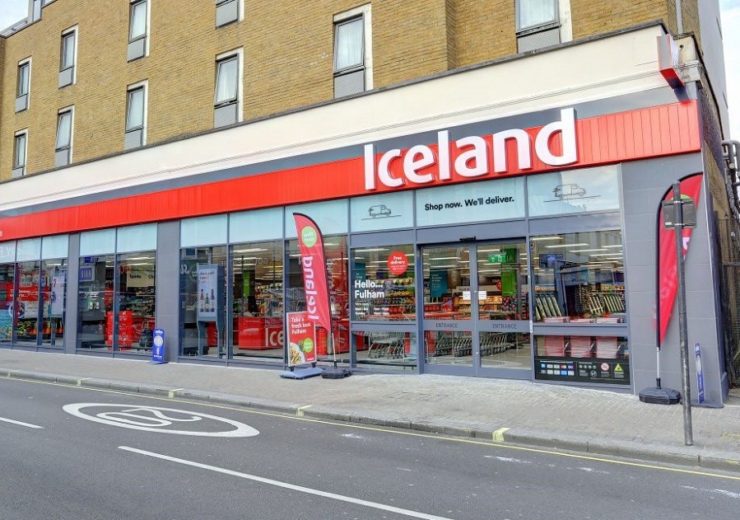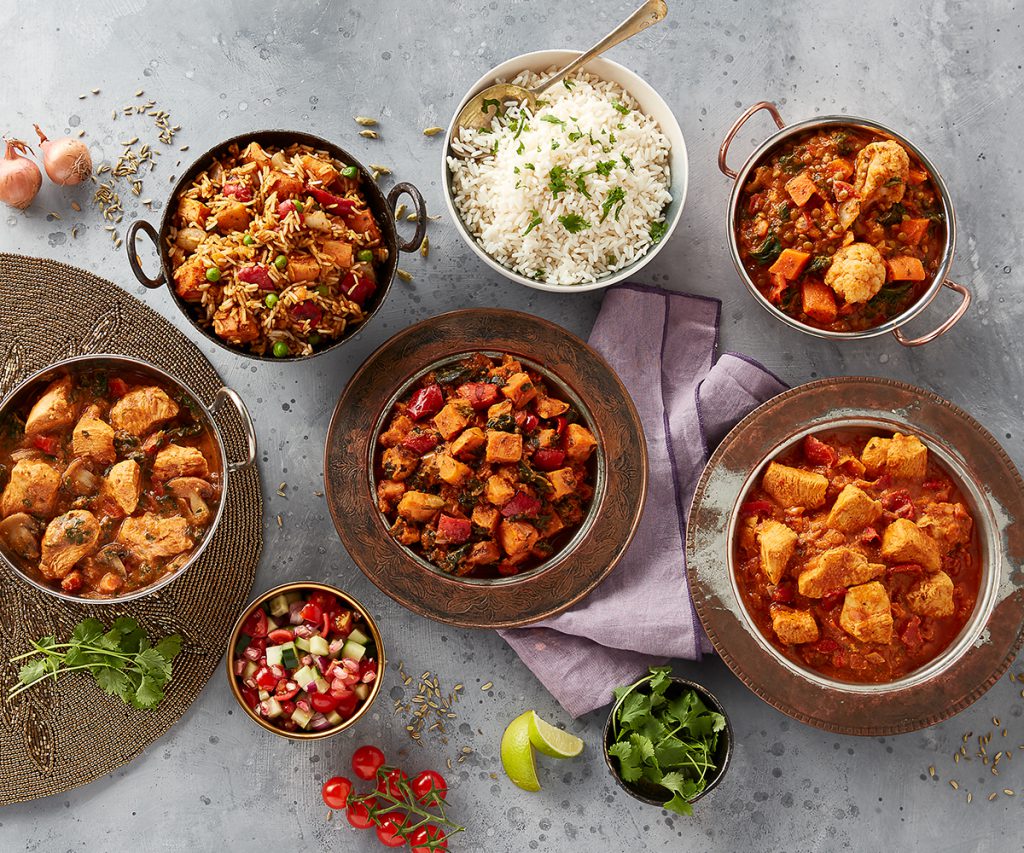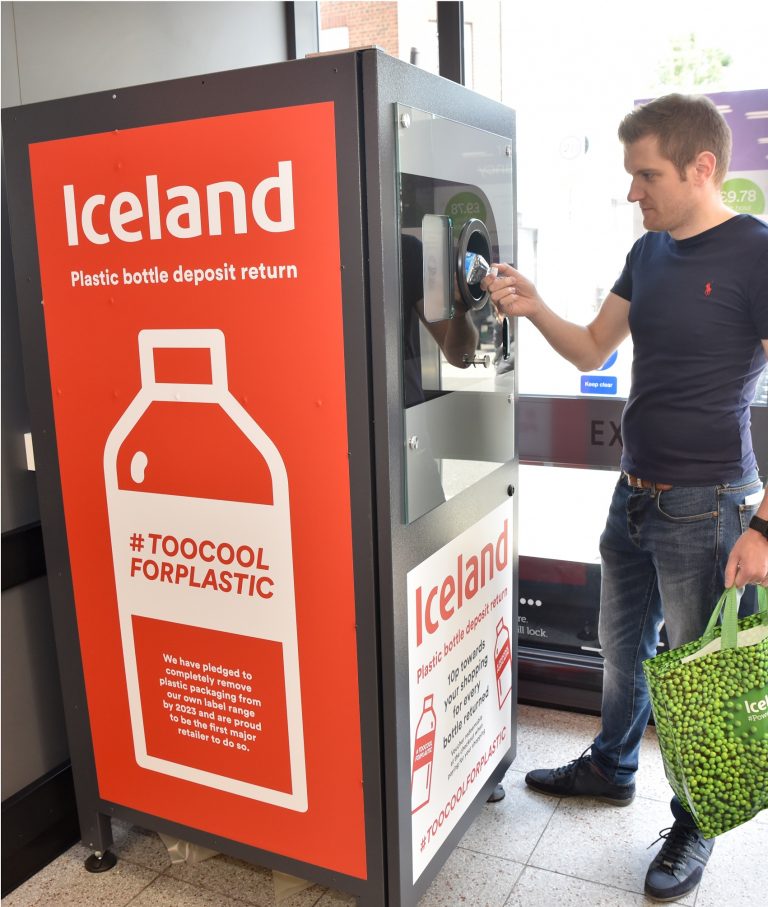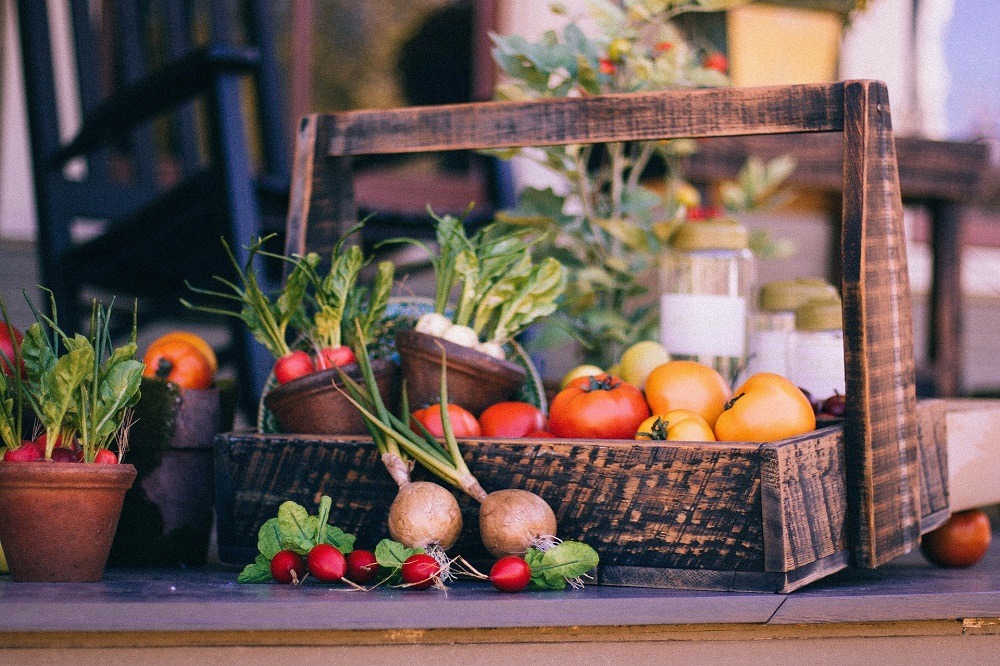Alongside its commitment to making 100% of its packaging plastic-free by 2023, the supermarket chain has trialled the use of a deposit return scheme in the UK

Iceland was founded by Sir Malcolm Walker in 1970 (Credit: Iceland)
As concern from consumers grows around plastic waste, supermarket chains such as Iceland, Sainsbury’s, Tesco and Waitrose are all making efforts to see their stores free of the material.
Last August, Tesco’s CEO Dave Lewis met with 1,500 suppliers to inform them that packaging was going to become a key part of the business’ decision-making around the type of products it would stock.
Alongside this, the retailer said it would remove one billion pieces of plastic from its packaging by 2020.
Waitrose aims to move towards plastic-free through refill stations for products such as coffee, rice and pasta, with this idea currently being tested in stores in Abingdon, Cheltenham and Oxford.
Another supermarket pushing forward with its sustainability pledges is Iceland, with the chain committed to getting rid of all plastic packaging.
What is Iceland’s plastic-free by 2023 policy?
First announced in January 2018, the supermarket put forward its five-year plan to eliminate plastic in all of its own-branded products by 2023.
Any current plastic packaging would be replaced with paper trays and bags, which would be recyclable through domestic collection recycling facilities based in store.
Prior to this announcement, the company carried out a survey of 5,000 people, 80% of which endorsed the move to go plastic-free.
Iceland managing director Richard Walker said at the time: “The world has woken up to the scourge of plastics.
“A truckload is entering our oceans every minute, causing untold damage to our marine environment and ultimately humanity – since we all depend on the oceans for our survival.

“The onus is on retailers, as leading contributors to plastic packaging pollution and waste, to take a stand and deliver meaningful change.
“There really is no excuse anymore for excessive packaging that creates needless waste and damages our environment.”
Currently the company’s Mumbai Street Co and Mexicana street food meal ranges have 85% less plastic in their packaging.
Trays in these packs are fully recyclable within the normal waste stream.
Iceland’s deposit return scheme trials
Iceland was one the first supermarket chains in the UK to trial the use of a deposit return scheme (DRS) in May 2018, offering users a 10p discount coupon for every plastic bottle inserted.
The frozen food specialist trialled the system for six months up to December 2018 in its stores in Wolverhampton, Mold, Musselburgh, Deeside and in Fulham, London.
The following month, the company announced shoppers had earned more than £30,000 ($39,000), with the scheme recycling 311,500 plastic bottles.

After the success of the trial, the scheme was expanded to one of its stores in the Northern Ireland capital, Belfast.
In August, Iceland announced it had captured and recycled more than one million plastic drinks bottles since introducing the reverse vending machines.
Speaking at the time, Walker said: “The results from our reverse vending machine trials highlight the growing demand from consumers to have DRS introduced across the UK.
“Iceland was the first retailer to trial reverse vending machines and we believe the customer feedback we have received shows that our simple model of accepting all sizes of plastic drinks bottle – and extending this to include drinks cans – is the only sensible way to roll-out DRS nationally.”
Iceland scrap the sale of loose fruit and vegetables in supermarkets
In December 2019, Iceland decided to scrap its loose fruit and vegetable trial, after it saw a 30% drop in sales.
As reported on the UK newspaper the I’s website, the company tested packaging-free produce aisles at a branch in north Liverpool, but it found that many of its customers were not willing to absorb the additional cost brought about by the move.

Walker said Iceland were still committed to removing its packaging, but it has proven hard to change shoppers’ habits.
He told the I: “We’re on a bold, ambitious journey here to remove all [plastic] packaging by the end of 2023,” he said.
“Some categories, such as frozen foods, are easier. Fresh produce is tough. It’s not the biggest area but it’s important and visual.
“And we need to work out how to make changes without adding to shoppers’ spending.”
